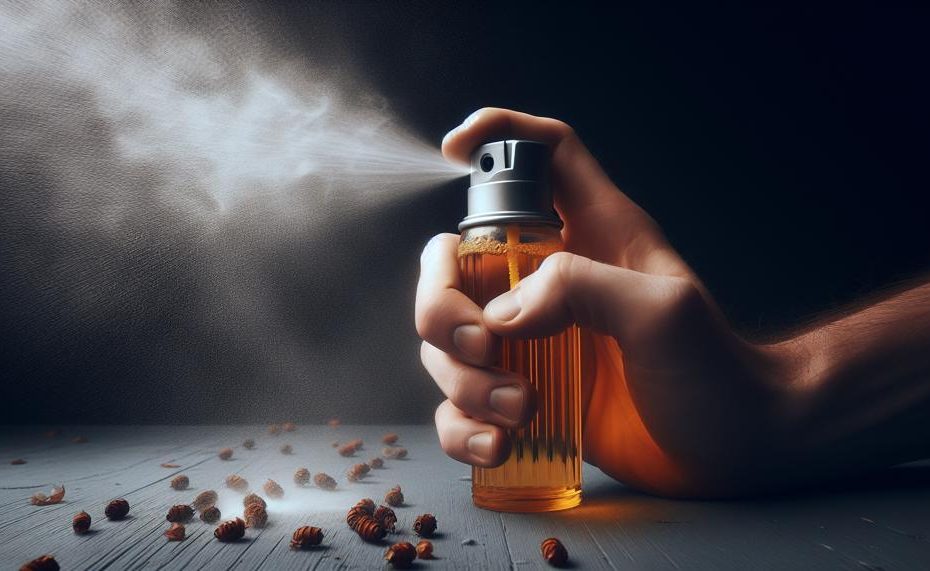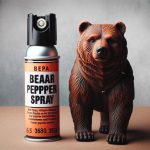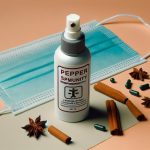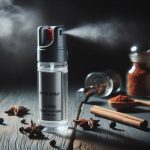Imagine this: you’re strolling down the street, enjoying a peaceful day, when suddenly you feel a burning sensation in your eyes and throat. You look up to see someone spraying pepper spray in your direction. Panic sets in as you struggle to breathe and see through the tears streaming down your face. It’s a frightening situation that no one wants to encounter, but unfortunately, it can happen.
In today’s world, exposure to pepper spray is a real possibility. Whether it happens during a protest or while working as a security guard, it’s important to know how to handle the aftermath. That’s why we’ve put together this guide on what to do if you encounter pepper spray. From immediate steps to take after being sprayed to long-term care for your skin and eyes, we’ve got you covered.
In this blog post, we’ll cover:
- Immediate actions to take after being sprayed
- How to soothe the intense burning sensation and reduce inflammation
- Tips for washing off the residue from your skin and clothes
- Long-term care for your eyes and skin
- The importance of seeking medical attention if necessary
Don’t let exposure to pepper spray catch you off guard.
Read on to learn how to handle it like a pro.
Contents
How Does Pepper Spray Work?
Pepper spray is a powerful substance that can neutralize an attacker by causing intense pain, irritation, and inflammation. This effect is due to the main ingredient, capsaicin, which triggers a variety of physical reactions in the body, making it difficult for the attacker to continue their assault.
However, the person exposed to pepper spray may also experience discomfort and irritation in the eyes, nose, and throat.
In rare cases, individuals may also suffer from skin irritation, burning sensations, and redness at the site of contact with the pepper spray.
| Effect on Attacker | Effect on Person Exposed |
| Intense pain and irritation | Discomfort and irritation to eyes, nose, and throat |
| Difficulty seeing | Skin irritation, burning sensations, and redness (rare) |
| Difficulty breathing and coughing fits | – |
| Inflammation of mucous membranes | – |
| Temporary blindness (rare) | – |
| Bronchitis or asthma attacks (pre-existing respiratory conditions) | – |
To alleviate the effects of pepper spray exposure:
- Flush affected area with clean water
- Use a solution of water and liquid antacid
- Apply cold milk or dairy products
- Utilize lemon juice
- Take a cool shower
- Avoid using vinegar.
Recovery time varies but typically lasts between 30 minutes to a few hours. Eye drops may provide temporary relief but it is recommended to flush with water instead.
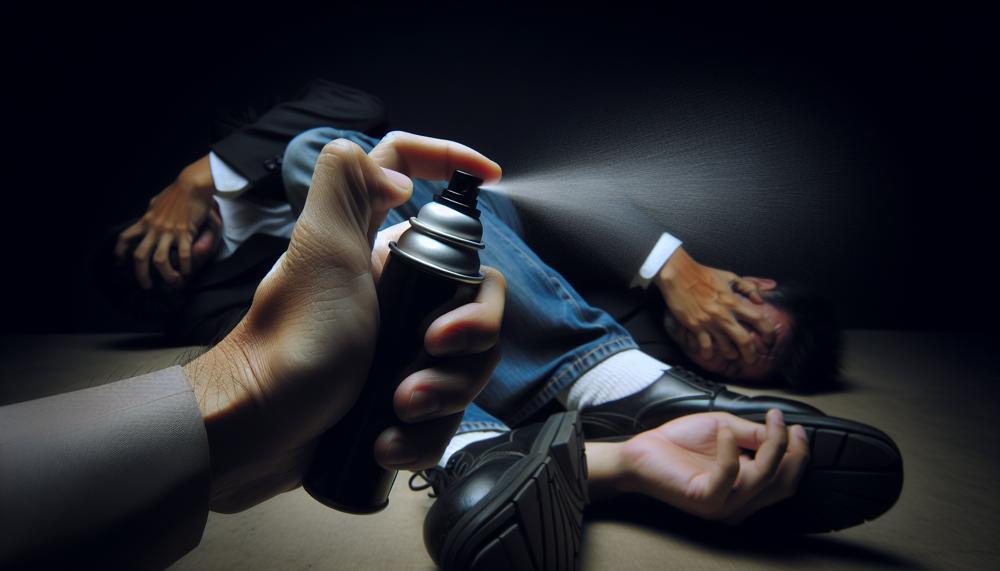
Remove contact lenses and rinse them thoroughly before reinserting.
How to Treat Pepper Spray: Immediate Steps to Take
In the unfortunate event of being exposed to pepper spray, there are several immediate steps you can take to alleviate the discomfort and speed up the recovery process. These steps include:
- Find a well-ventilated area: Due to its potential to cause difficulty in breathing, it is crucial to move to an area with fresh air.
- Keep your eyes open: To flush out the irritant, blink rapidly and avoid rubbing your eyes, as this can further aggravate the effects.
- Rinse affected area with water: Use clean water or a saline solution to rinse the affected area. This will help to remove the irritant from your skin and eyes.
- Use a cleansing solution: If clean water is not available, try using a cleansing solution such as hand soap, shampoo, or dish soap to wash your skin. Be sure to rinse thoroughly with water afterwards.
- Change out of contaminated clothing: To prevent re-contamination, remove any clothing that may have come into contact with the pepper spray and wash them separately.
- Seek medical attention if necessary: If your symptoms are severe or if you have pre-existing respiratory conditions, it is essential to seek medical attention.
- Avoid using oil-based substances: DO NOT use oil-based substances on the affected area as they can worsen the effects of pepper spray.
- Try alternative remedies: While there is no guaranteed cure for pepper spray exposure, some people have found relief by using a solution of water and liquid antacid, applying cold milk or dairy products, using lemon juice, or taking a cool shower. However, it is important to avoid using vinegar as it can further aggravate the skin.
By following these immediate steps, you can minimize discomfort and aid in the recovery process after being exposed to pepper spray.
Remember to always seek medical attention if necessary and avoid using oil-based substances on the affected area.
How to Treat Pepper Spray: Alleviating the Effects
Pepper spray, while an effective self-defense tool, can cause extreme discomfort and pain upon exposure. If you find yourself on the receiving end of pepper spray, there are several ways you can alleviate its effects without resorting to harmful or ineffective remedies.
- Rinse with clean water: As soon as possible, move to an open area with fresh air and rinse the affected area with cool water. This will help to neutralize the burning sensation caused by the capsaicin in the spray.
- Use a water and antacid solution: Antacids like Maalox or Mylanta can be effective in counteracting the effects of pepper spray. Mix one part antacid with four parts water and use it to rinse the affected area.
- Apply cold milk or yogurt: Dairy products contain casein, a protein that helps to neutralize capsaicin. Applying cold milk or yogurt directly to the affected area can provide relief from the burning sensation.
- Try lemon juice: The acidic properties of lemon juice can also help to neutralize the effects of pepper spray. Squeeze fresh lemon juice onto the affected area or mix it with water for a soothing rinse.
- Take a cool shower: A cool shower can help to relieve discomfort and burning caused by pepper spray exposure. Avoid using hot water, as it can worsen the effects by opening pores and spreading the irritant.
- Avoid vinegar: While vinegar is often suggested as a remedy for pepper spray exposure, it can actually make things worse. The acidic properties of vinegar can increase discomfort and irritation.
Remember, it’s crucial not to touch or rub the affected area as this can spread the irritant and worsen symptoms. Also, avoid using oil-based substances as they may trap capsaicin on your skin.
In addition to these remedies, be sure to seek medical attention if you have pre-existing respiratory conditions or if your symptoms are severe. While recovery time varies, it typically lasts between 30 minutes to a few hours.
For temporary relief, eye drops may be helpful, but flushing with water is the best course of action. If you wear contact lenses, remove them and rinse them thoroughly before reinserting.
Also Read: Can You Bring Pepper Spray To School?
Conclusion
In conclusion, being exposed to pepper spray can be a terrifying and agonizing experience.
Whether it occurs during a demonstration or in a self-defense situation, it is crucial to know how to handle the aftermath. In this blog post, we have discussed immediate steps to take after being sprayed, such as finding fresh air, rinsing with water, and seeking medical attention if necessary.
We have also addressed long-term care for the skin and eyes, including the use of antacid solutions and dairy products to neutralize the effects of capsaicin. It is important to refrain from rubbing the affected area and using oil-based substances as they can exacerbate symptoms.
Always prioritize your safety and seek medical assistance if required.
